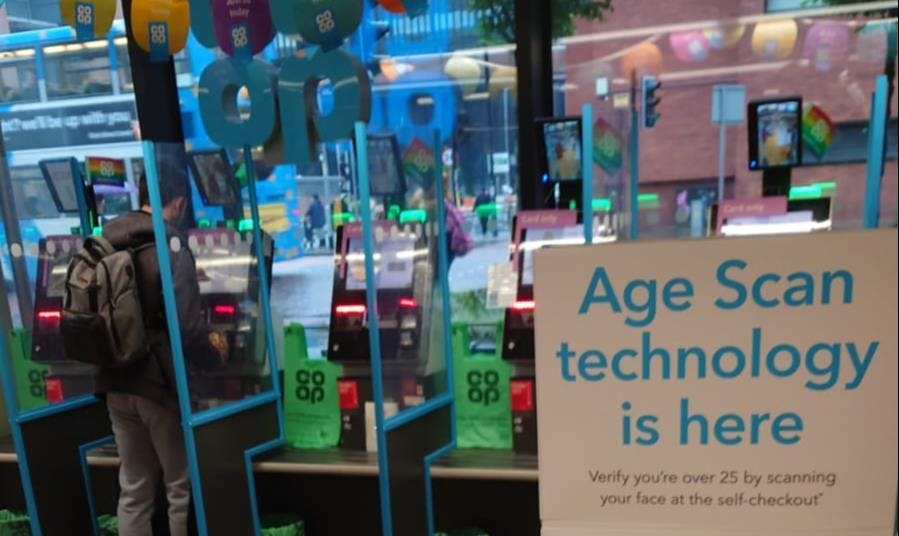
Age Verification at Self Checkout - Retailer Learnings
Age verification at the self-checkouts has the potential to reduce the number of physical interventions (productivity), to reduce abuse and violence associated with age verification (better retail jobs) and improve the shopper experience (less time) - what is not to love?
And now with the use of age verification growing in other sectors, such as online social media, and with many emerging vendors, such as Yoti, partnering with POS providers such as NCR, (click here), now offering retailers this capability, and critically government policy makers getting closer to approving its use, here were three key learnings from the Coop UK 2022 sandbox trial.
1) The Technology - Not a Slam Dunk! What we learnt from the Coop trial results was that this was yet another new technology in the store that required bandwidth, that it required good cameras, possibly new better cameras, it required integration and then thought given on SCO machine placement in the stores that helped avoid possible factors that might cause error, such as sunlight. Above all, it is a technology that will require a significant investment in both financial resources and project management.
2) Consumer Acceptance is High: The tests were conducted in four stores, mostly in areas where there were a high number of students. The stores were required to place POS materials across the store to make shoppers aware that age verification technology was available. They positioned the technology as a way to checkout faster

In the trial results, over 60% of shoppers when prompted, opted in, and allowed the machine to take a photo of themselves. Over 50% of shoppers were automatically verified by the technology and deemed to be over 25. The core element of the business case is thus a function of the reduced number of age verification interventions multiplied by the average time required to manage each transaction multiplied by the cost of the store labour. .
3) Positive Staff Response: On a daily basis, store associates will receive abuse, sometimes physical violence as they go about their work. In some stores, up to 75% of those incidents can be linked to age verification, where the store associate is expected to challenge the age of the shopper and ask for ID before they can process the payment, which is where tensions are raised. And while this age verification technology will not remove completely the need to challenge possible under-age shoppers, it can reduce the volume of checks associated with the refusal to sell age related products, such as alcohol, verified by a machine Vs a store associate.
For a video recap of this meeting, please see video below with Professor Beck.
Finally, if retailers would like to see the full recording of the meeting from 2022, please send email to colin@ecrloss.com.
Jul 17, 2024
Main office
ECR Community a.s.b.l
Upcoming Meetings
Join Our Mailing List
Subscribe© 2023 ECR Retails Loss. All Rights Reserved|Privacy Policy
